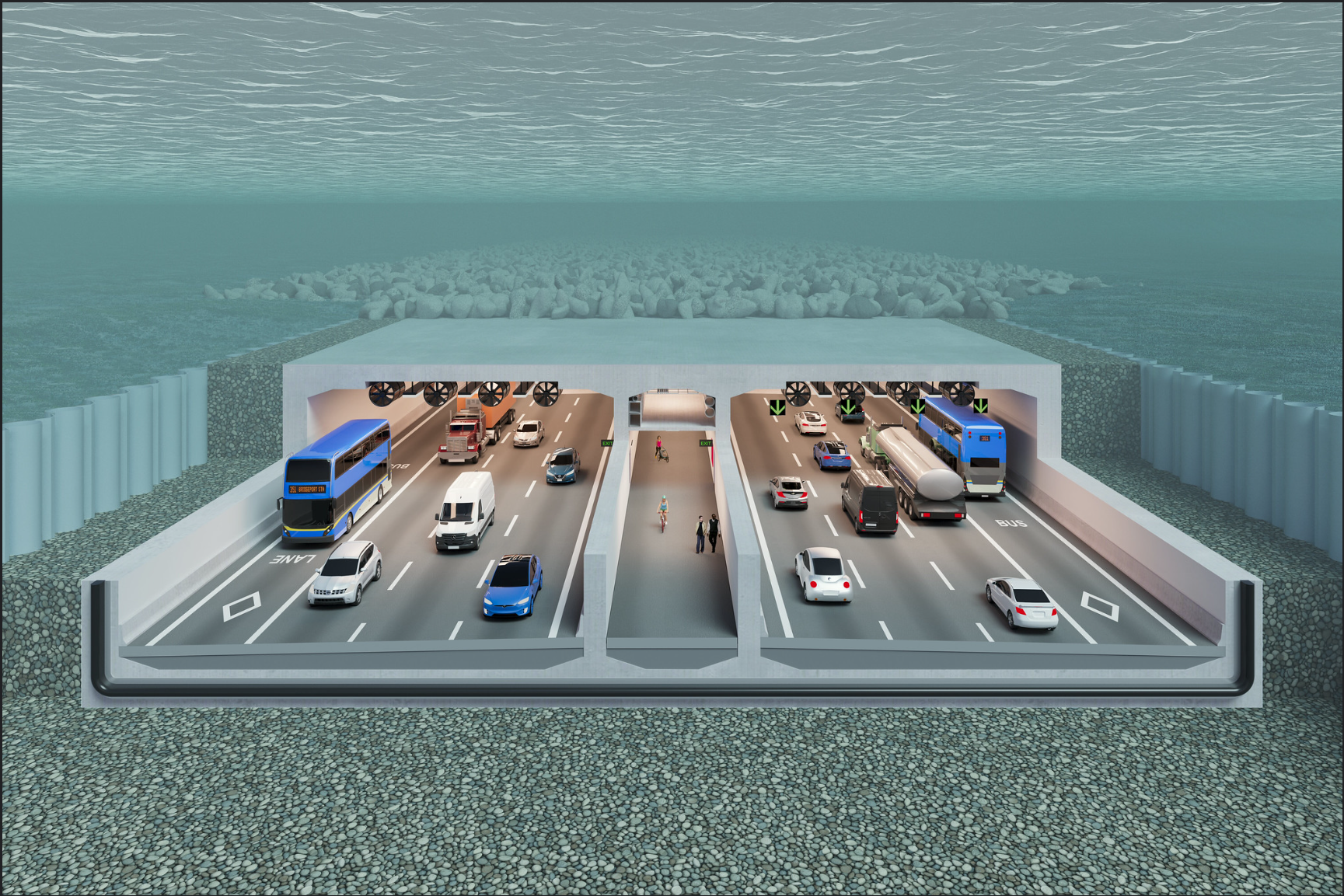The chaotic development of the Massey Tunnel
(Image courtesy of the Government of British Columbia)
On June 4 and 5, the BC government is inviting members of the public to provide feedback on the eight-lane, immersed-tube, tunnel replacement project for the Massey Tunnel, which was originally opened in 1959 on Highway 99.
The $4.15 billion project is spearheaded by the BC Transportation Investment Corporation and the Cross Fraser Partnership, a consortium of local businesses in the area, with approval and endorsement from the Metro Vancouver Board. Construction is expected to commence in 2026 and be completed by 2030.
The aging infrastructure of the Massey Tunnel means it does not meet modern highway standards due to factors like seismic risk, no bike lanes, and a short height limit. An upgrade is needed, and it seemingly comes in the form of the tunnel replacement, which will feature three vehicle lanes and one transit lane on each side, with a separate corridor being planned for pedestrians and cyclists.
However, looking at the past development efforts for infrastructure along Highway 99, which included a proposed 10-lane bridge project, some would question why the Massey Tunnel hasn’t been replaced sooner.
Past Proposal
While the tunnel was retrofitted for seismic activity in 2006, this was not enough to safeguard its future protection and stability. Eventually, there would have to be a complete replacement of the infrastructure to keep Highway 99 running as a critical road in BC.
In 2012, the BC Liberal government approved plans for a 10-lane bridge project that would completely replace the Massey Tunnel. This project would have included dedicated transit and HOV lanes, and would’ve overhauled existing infrastructure outside of the bridge, such as the various interchanges in Richmond and Delta along the 99. It was estimated to be completed in 2022.
The estimated cost for the entire project was $3.5 billion, roughly $650 million less than the current $4.15 billion tunnel replacement, which has eight lanes instead of ten. Visually, the proposed bridge would have resembled the Port Mann Bridge that runs over the Fraser River farther upstream.
In 2017, the year the bridge was to commence construction, the BC Liberals under Christy Clark were dethroned by John Horgan’s NDP party, and the project soon fell apart. The NDP and Green parties were highly skeptical and critical of the project after their analysis of it was conducted, with the late John Horgan stating that the $3.5 billion budget doesn’t account for interest costs, which he estimated could drive the total cost to $12 billion.
Horgan also cited how the mayors of local municipalities had opposed the proposal for various reasons, despite the Metro Vancouver Mayor’s Board later signing on to the replacement tunnel years later.
At that point, it is estimated that around $60-70 million had been spent on pre-construction for the tunnel before it was cancelled. This is in addition to the $4.15 billion being spent on the current tunnel, which will be completed by 2030, rather than 2022 as the original bridge proposal outlined.
Back and Forth
Many have been frustrated with this seemingly wasteful “back and forth” of government expenditure for an infrastructure project. Most importantly, users of Highway 99 have to deal with an aging, seismically sensitive tunnel for longer than expected, as fears of a massive earthquake have increased in recent times.
The NDP government under Premier David Eby has also come under fire recently for turning down “hundreds of millions of dollars” from the federal government, for apparently wanting to have a “50-50” deal with Ottawa instead. Prime Minister Mark Carney’s government has yet to pledge this amount of funding to the project. If they were to split the cost in half, it would be just over $2 billion committed from Ottawa.
The locations for the feedback on June 4 will be at a Delta Hotel, located at 6005 Highway 17A, from 4 to 8 p.m. The location for the June 5 session will be at the UBC Boathouse from 4 to 8 p.m.


